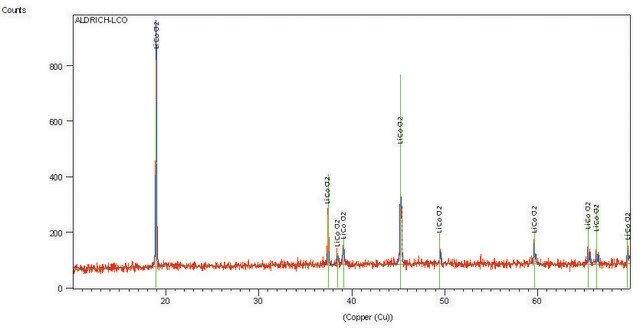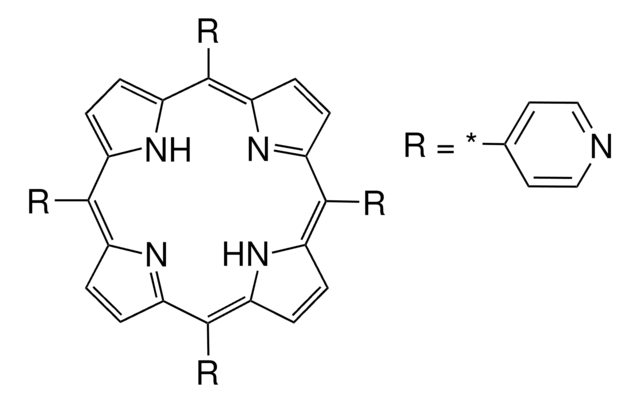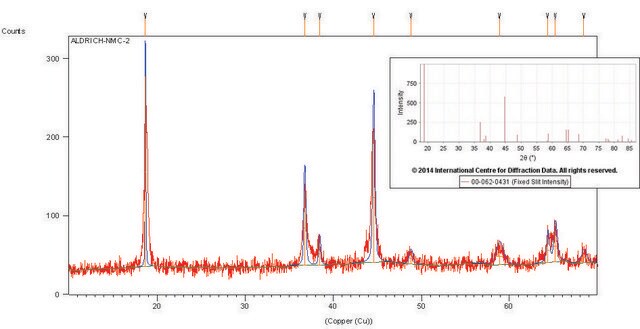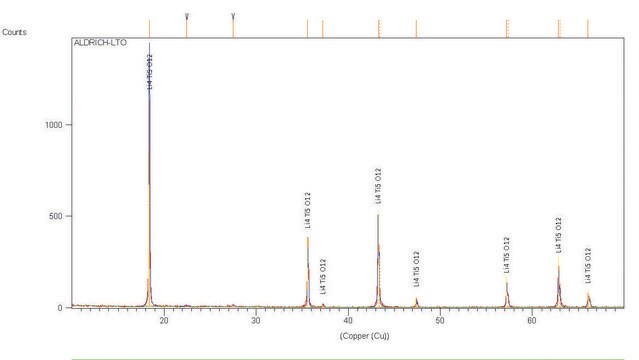725145
Lithium cobalt phosphate
powder, ≥99% (trace metals analysis)
Synonym(s):
Cobalt lithium phosphate, LCP
About This Item
Recommended Products
grade
battery grade
Quality Level
Assay
≥99% (trace metals analysis)
form
powder
mol wt
Mw 160.85 g/mol
composition
LiCoPO4
greener alternative product characteristics
Design for Energy Efficiency
Learn more about the Principles of Green Chemistry.
sustainability
Greener Alternative Product
density
3.65 g/cm3 (lit.)
application(s)
battery manufacturing
greener alternative category
, Enabling
SMILES string
[Li+].[Co++].[O-]P([O-])([O-])=O
InChI
1S/Co.Li.H3O4P/c;;1-5(2,3)4/h;;(H3,1,2,3,4)/q+2;+1;/p-3
InChI key
SBWRUMICILYTAT-UHFFFAOYSA-K
Looking for similar products? Visit Product Comparison Guide
Related Categories
General description
Application
Features and Benefits
Li-Batteries, material for electrodes design and manufacturing
Legal Information
related product
Storage Class Code
11 - Combustible Solids
WGK
WGK 3
Flash Point(F)
Not applicable
Flash Point(C)
Not applicable
Choose from one of the most recent versions:
Already Own This Product?
Find documentation for the products that you have recently purchased in the Document Library.
Customers Also Viewed
Articles
Increasing fuel costs and concerns about greenhouse gas emissions have spurred the growth in sales of hybrid electric vehicles (HEVs) that carry a battery pack to supplement the performance of the internal combustion engine (ICE).
Nanomaterials for Energy Storage in Lithium-ion Battery Applications
Professor Qiao’s laboratory lays out recent advances in conversion type lithium metal fluoride batteries. This review explores key concepts in developing electrochemically stable microstructures for wide Li-ion insertion channels.
Electrode Materials for Lithium Ion Batteries
Our team of scientists has experience in all areas of research including Life Science, Material Science, Chemical Synthesis, Chromatography, Analytical and many others.
Contact Technical Service
















